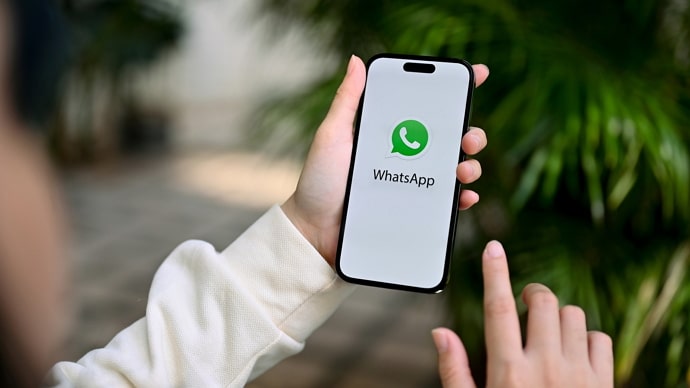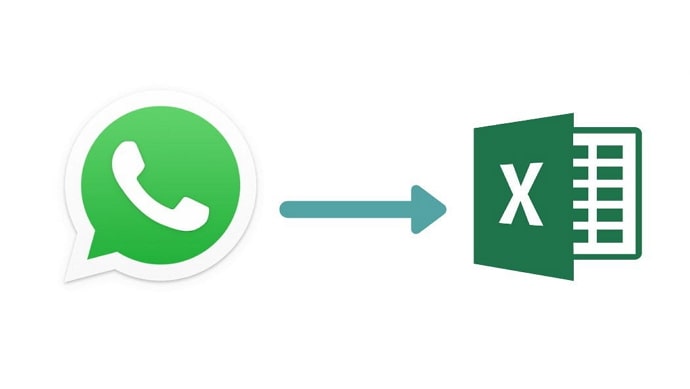Since its launch in 2009, WhatsApp has gradually become an essential application worldwide, letting users connect seamlessly, regardless of location. With its various features, WhatsApp has become an integral part of modern communication. One of WhatsApp’s primary strengths is its simplicity. Its user-friendly interface allows individuals of all ages to navigate the platform effortlessly. Text and voice messages, photos, videos, documents, and even voice and video calls are all available here.

Group chats allow discussions among friends, family, and colleagues, while broadcast lists enable personalized mass messaging. WhatsApp’s end-to-end encryption ensures that messages remain private and secure, contributing significantly to its widespread adoption.
A huge advantage of WhatsApp is its cost-effectiveness. It bypasses traditional SMS charges on an internet connection, making international communication budget-friendly. Voice and video calling on WhatsApp utilize Voice over Internet Protocol (VoIP) technology, enabling high-quality calls without extra fees.
Another advantage is its convenience. With the platform available on smartphones and desktop computers, users can alternate between devices while maintaining their conversations. This enhances the overall experience and ensures that conversations are always accessible.
Despite its numerous advantages, WhatsApp does have certain drawbacks. Its dependency on internet connectivity can be a limitation, especially in areas with unstable or limited internet access.
Additionally, while end-to-end encryption ensures security, it has been criticized for potentially providing a platform for illegal/harmful activities by monitoring encrypted content.
While all social media platforms have their share of issues and controversies, we can agree that WhatsApp has influenced our lives heavily. From media sharing to online payments and even instant messaging have all contributed to making our lives much easier, won’t you agree?
In today’s blog, we’ll discuss how you can tell when someone shares their WhatsApp statuses with only you.
How to Know What Whatsapp Statuses are Shared to Me Only?
First things first: Is it even possible to know when a WhatsApp status has been shared with you only? Well, technically, no, it’s not possible. No feature or option on WhatsApp lets you find out if a status has been shared only with you.
That being said, some numerous tricks and hacks might help you understand whether you’re the one this status was posted for. Admittedly, these don’t guarantee you an exact answer, but trust us, you’ll be able to find it out yourself by the end of this blog.
WhatsApp status privacy
Before we address today’s main topic, let us quickly provide you with some much-needed context.
If you’re a new user of WhatsApp, then you might not know about the status privacy feature. WhatsApp offers several privacy options to control who can see your status updates. These options cater to different preferences, ensuring that users have control over who gets to view their content.
So, you can change your privacy settings before uploading a status, and only your selected group can see it. Naturally, you can also simply show your status to one person only.
Here’s how to access your WhatsApp Status privacy settings
Step 1: Open WhatsApp on your smartphone; the first screen you’ll land on is the Chats tab.
Step 2: Go over to the Status tab by swiping left. Here, tap the three dots icon at the top right and select Status privacy from the options.
Step 3: Now, you’ll be given three options; let’s explore them in detail.
My contacts: Your status updates will be visible to all the contacts saved in your phone’s address book who are also on WhatsApp. This is the default setting for most users, allowing a broad reach while still being limited to your existing contacts.
My contacts except It provides more control over who sees your status. You can exclude specific contacts from viewing your status updates while still sharing with the rest of your contacts.
Only share with: This is the most exclusive privacy option. When you choose this setting, only the contacts you select will be able to view your status updates.
My contacts except It provides more control over who sees your status. You can exclude specific contacts from viewing your status updates while still sharing with the rest of your contacts.
Only share with: This is the most exclusive privacy option. When you choose this setting, only the contacts you select will be able to view your status updates. It’s perfect for sharing updates with a select group while keeping your status private from others.
So, choose whichever option suits you best, and upload away!
Here’s how to know if WhatsApp statuses are shared with you only
So, let’s get back to the topic: How can you know which WhatsApp statuses are shared exclusively with you? Well, as we’ve said before, there’s no specific feature on WhatsApp that’ll give you the correct answer.
But we can try to make educated guesses and assumptions from the context.
Look for personal context
If the status update references a shared memory, an inside joke, or something specific to your relationship with the contact, it’s likely meant for your eyes only. Personalized captions or content could indicate exclusivity.
For example, if they post a picture from a moment with you and caption it with “remember this?”, it might be for you. Moreover, if the caption seems to address you personally, there’s a big chance that you’re the only one who’s seeing it.
Frequency of updates
If a contact consistently shares status updates about your conversations or experiences, they might direct these updates toward you. This pattern suggests an exclusive sharing intention.
Response from the contact
If you engage with a status and the contact responds in a way that suggests a deeper connection, the status might’ve been meant for you to see. For example, let’s say they uploaded something you’re very interested in or relevant to you.
Very predictably, you reply to it, and they respond quite interestedly, with many more conversation points. This could indicate a well-orchestrated conversation that has been planned exclusively for you.
Asking them about it
If you’re indeed so curious as to whether or not this user is sharing their status updates only with you, there’s a simple way to satiate the curiosity. All you need to do is ask them if they’ve posted these statuses just for you.
While it might not be the easiest way, it is the best and most straightforward way to clear the air. It will also raise you in their eyes as a mature and straightforward person, which is a great impression to have.
Respecting privacy and boundaries
While it’s fun to do detective work to find out the exclusivity of WhatsApp statuses, it’s essential to approach this with sensitivity and respect for privacy.
Not all status updates are meant to be exclusive, and misinterpreting them could lead to misunderstandings. Everyone has reasons for sharing statuses with certain individuals; respecting them is important for maintaining healthy relationships.
Also Read:





 Bitcoin
Bitcoin  Ethereum
Ethereum  Tether
Tether  XRP
XRP  Solana
Solana  USDC
USDC  Dogecoin
Dogecoin  Cardano
Cardano  TRON
TRON